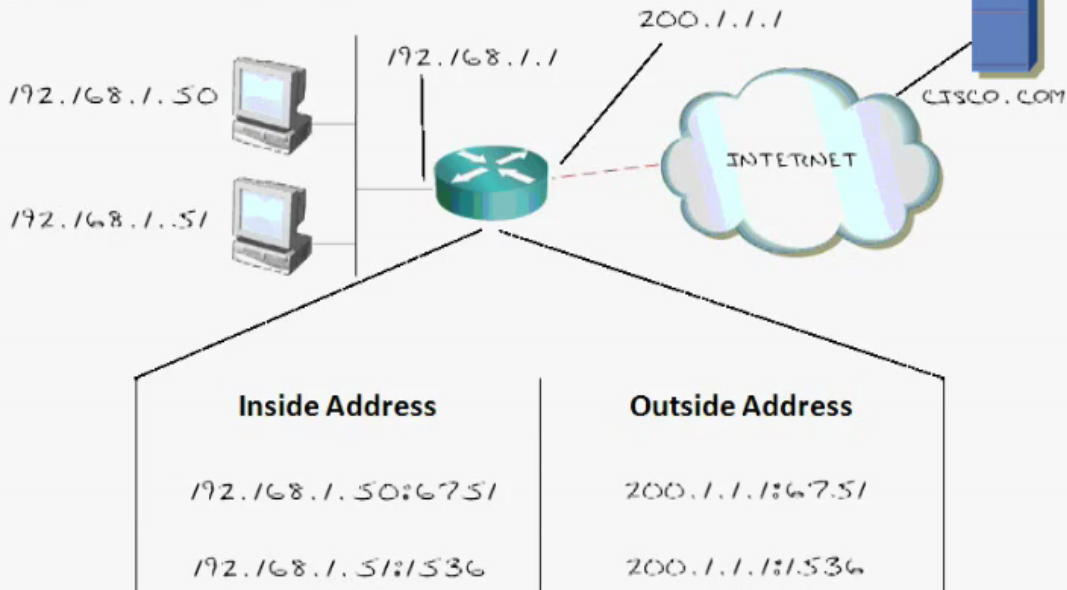Understanding the need for NAT
The Forms of NAT
Configuring NAT using the SDM
Understanding the need for NAT
- The Internet is just a massive network of networks
- So many devices connected, we ran out of IPv4 IP addresses
- NAT (Network Address Translation) allows many devices to share an Internet IP Address
How NAT Works
- Several devices on Private Network that want to access the Internet, but you only have 1 public IP.
- .1.50 wants to access a web page. Source IP:Port = 192.168.1.50:6751
- NAT converts to Source IP:Port = 200.1.1.1:6751 and stores in the NAT Table
- .1.51 wants to access a web page. Source IP:Port = 192.168.1.51:1536
- NAT converts to Source IP:Port = 200.1.1.1:1536
- .1.50 wants to access a web page. Source IP:Port = 192.168.1.50:6751
- 65,535 Ports available.
- *IF* two PCs request the same Source Port, the Router will assign an available Port two one of the requests and store the change in the NAT Table.
- .1.50:6751=200.1.1.1:6751, .1.51:6751=200.1.1.1:4567
- This type of address translation is commonly called PAT, Port Address Translation, or “NAT Overload”
- *IF* two PCs request the same Source Port, the Router will assign an available Port two one of the requests and store the change in the NAT Table.
- Static NAT (Network Overload) will assign a 1:1 translation if specific traffic needs to go to a specific IP
- 192.168.1.20 -> 200.1.1.2 (Static IP provided by ISP)
Using the SDM
Basic NAT: Same as PAT, or NAT Overload
Advanced NAT: Allows static mappings to allow traffic back into your network
Starting with Basic NAT (Can add Advanced later)
- Select Interface that connects to the Internet
- Check all Interfaces you want to share with the Internet connection
- Done!
r1(config)#access-list 1 remark ACL Category 2 r1(config)#access-list 1 permit 192.168.11.0 0.0.0.255 r1(config)#interface fastethernet0/0 r1(config-if)#ip nat inside r1(config-if)#exit r1(config)#interface fastethernet0/1 r1(config-if)#ip nat inside r1(config-if)#exit r1(config)#ip nat inside source list 1 interface 0/1 overload
Show Commands
show ip nat translations
